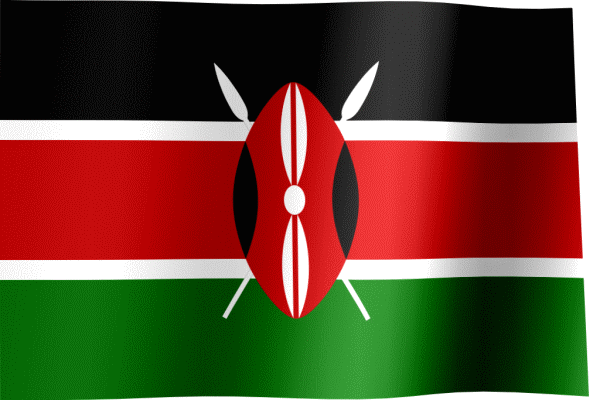
The 9th Edition of Africities Summit will be held in Kisumu City on 17th-21st May 2022.The theme of the 9th Edition is, ‘The Role of Intermediary Cities of Africa in the implementation of Agenda 2030 of the United Nations and the African Union Agenda 2063’. The Africities Summit pursues two major objectives;
i. Defining appropriate shared strategies in order to improve the living conditions of people at the local level.
ii. Contribute to the integration, peace and unity of Africa starting from the grassroots.
Kenya intends to launch the building the climate resilience of the urban poor (BCRUP) on the sidelines of the summit.
BCRUP is one of the 41 Climate initiatives of the UN Climate Action Summit held in New York in September 2019. These initiatives aim at raising climate ambitions and to scale up climate action to stay within 1.5 C temperature rise as per the Paris Agreement (COP21). H.E. President Uhuru Kenyatta launched the Building Climate Resilience for the Urban Poor (BCRUP) initiative on behalf of the global community during the Climate Action Summit. H.E the President has led from the front on this important initiative and has spearheaded several initiatives.
The Climate Action Summit in New York in 2019 was structured into 9 tracks with Kenya, co-leading the Infrastructure, Cities and Local Action (ICLA) track with the Republic of Turkey and technical support by UN-Habitat. There were five (5) sub-tracks under the ICLA track namely Buildings; Transport; Climate Resilience for the Urban Poor; Decentralized Finance; and Subnational Mobilization. Kenya undertook to spearhead the sub-track on “Building Climate Resilience for the Urban Poor (BCRUP)” with Brazil as member and UN-Habitat providing technical support.
The BCRUP initiative is conceptualized around five outcomes namely:
· Hotspot Identification of vulnerable urban areas, which involves mapping out of cities at global, national and subnational scales that have the urban poor and vulnerable to climatic disasters. Kenya has identified about 580 urban poor areas to be subjected to climate vulnerability assessment.
· Green Climate Resilience Urban Spatial Plans, which entails preparation of climate change responsive development spatial framework and land use zoning regulations to deter urban sprawl and proliferation of informal settlement.
· Human Settlement and Infrastructure Improvement, will deliver policies and regulations to effect low carbon emissions and efficient and resilient built environment and climate proof infrastructure.
· Green Urban Economy, community adaptation, livelihood strategies and tenure security interventions, which is geared towards improving livelihood and enhance safety net for urban poor thus focusing on inter alia Clean Energy for Cooking, Waste to Energy, Revenue Generation, social safety net and development of disaster risk management centers.
· Strengthened Nationally Determined Contributions (NDCs) urban dimensions and database. An estimated 60% of Kenya's urban population living in urban areas being categorized as Urban Poor, and having been mapped as living along fragile urban ecosystems and are characterized by low adaptive capacities due to low-income levels. Some of the negative impacts that affect the urban poor are flooding, landslides, water shortages, poor air quality, and sustainable social, economic and livelihoods support infrastructure. The BCRUP initiative therefore is a milestone that will go a long way to turn urban system to vibrancy and productivity.
The BCRUP initiative links with several programs that are being implemented including, Kenya Urban Programme, Kenya Urban Support Programme (KUSP), Kenya Urban Resilient Programme, Kenya Informal Settlement, and Improvement Programme, Kenya Slum Upgrading Programme, and Affordable Housing Programme.
Kenya has put in place policies and legislative frameworks that support the implementation of the programs including the BCRUP initiative: the National Urban Development Policy, National Housing Policy, Slum Upgrading Policy, Urban Areas and Cities Act, and the Climate Change Act. These policies when unpacked, prescribe partners’ roles and linkages to the BCRUP component.
The BCRUP Implementation Strategy is a culmination of a multi-agency and multidisciplinary effort towards enhancing the adaptive capacity of the urban poor population.
On Thursday 5th May 2022, the Principal Secretary State Department of Housing and Urban Development, Mr. Charles Hinga led key Partners at a meeting to deliberate on the implementation of BCRUP. In attendance were various stakeholders, State Department for Housing and Urban Development, UN-Habitat, KEPSA, KURA, Ministry of Foreign Affairs, NCCG, State Department for Transport, State Department for Physical Planning, Embassy of Brazil, UNEP, EU, KIPPRA, Kenya Permanent Mission to UNHABITAT, and National Treasury.
Focus was on synergizing and leveraging resources (technical and financial) towards operationalization and implementation of the BCRUP- Kenya Initiative with an aim of;
· Enhancing the Socio-Economic Transformation of the Urban Poor,
· Building Climate Resilient Infrastructure and Human settlements,
· Promoting environmental sustainability in the urban areas,
· Mainstreaming resilience of urban institutions,
· Promoting the adaptive capacity of the urban poor, and
· Strengthening nationally determined contributions (NDCs) urban dimensions and database.
Partners agreed on the need to work together and create practical ways of addressing issues of the urban poor. The strategy is set to be launched at the 9th Africities Summit in Kisumu on 17th-21st May 2022.

